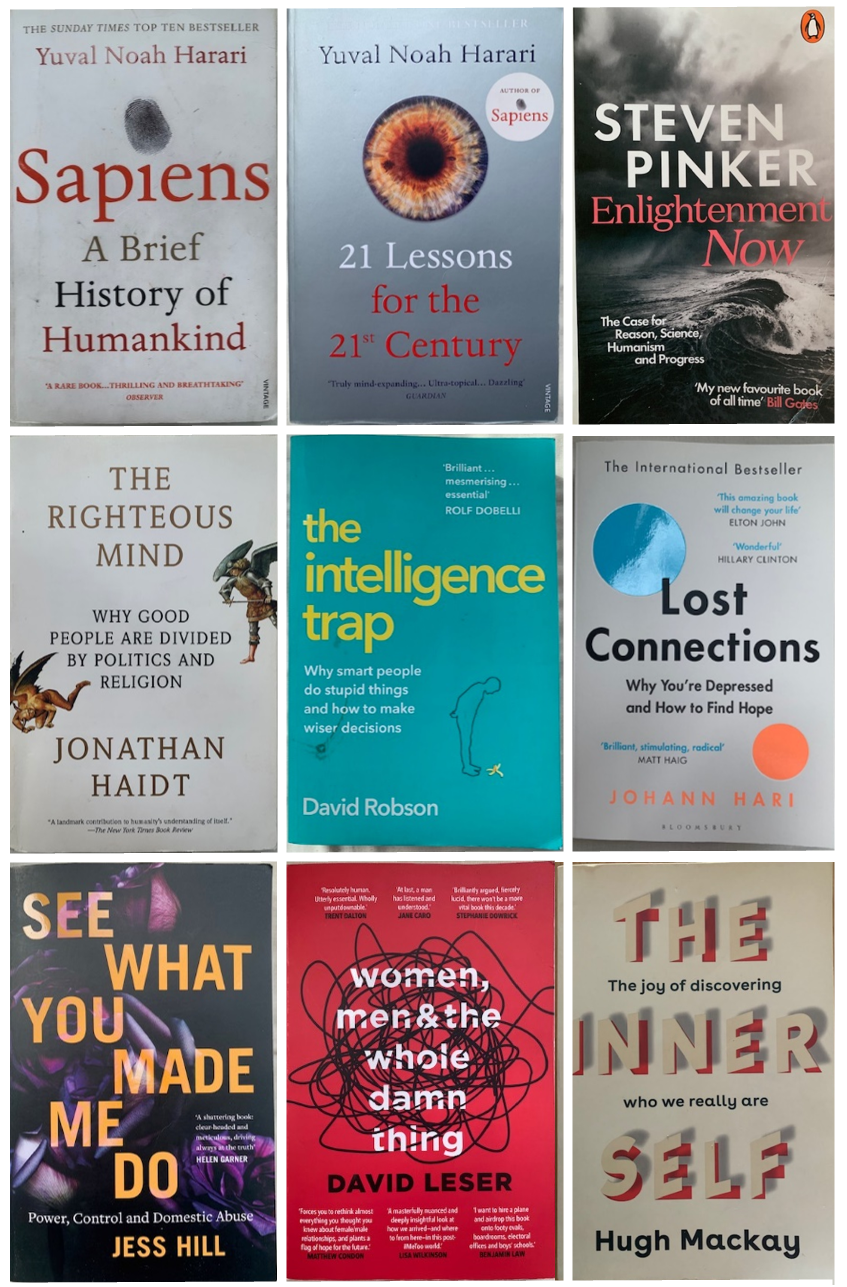
Time to Read
Immersion in the story telling of a talented author is bliss for those who go there and few things in life are more therapeutic. If the book is good, this is as true for the musings of non-fiction writers as it is for the imagined worlds of fiction.
Research into book reading strongly suggests tangible benefits, including stress reduction, longer productive life, improved knowledge and language skills, greater flexibility and creativity, and in the case of fiction reading, enhanced empathy and positive personal transformation.
As we are increasingly lured on-line, book reading can be a powerful foil against the negative consequences of drinking information from the shallow pool of social media, such as increased anxiety and depression, getting trapped in biased algorithm driven knowledge bubbles, irregular sleep, fear of missing out, feeling pressure to live up to impossible expectations and technology addiction.
I’ve tried reading books on a device, but it’s just not the same. At first, I thought it might be a generational thing, but many others have had the same experience and paper books continue to outsell e-book by a significant margin.
The weight and feel, smell and sound of a real book all contribute to make the act of book reading a unique sensory experience. One that transcends simple information transfer from writer to reader.
No other medium so powerfully compels us to stop and reflect upon what we are absorbing relative to what we think we already know. If we take the time, book reading can change minds and lives.
A colleague who was geographically separated from her partner due to Covid, recently shared with me her delightful story of book reading. She and her far-away boyfriend read the same books to each other over the phone during the lonely lockdown months. The experience has greatly enriched each of them and strengthened their relationship.
In this twittering world, we so often tell ourselves we do not have time to read books. That long, deep, reflective reading from cover to cover is an indulgent, inefficient use of our limited time. That scanning and skimming is good enough.
Sometimes out of perceived necessity but increasingly out of choice, we turn to someone else’s abridged, key point version, distilled to what they believe is worth noting. It’s like receiving a postcard from the beach without experiencing the exhilaration of diving into the ocean. The first is no substitute for the real thing.
If it’s a good book, all the words matter and are worth reading. In our rush to identify and extract key themes, we too often forget the value of engaging in the reading experience, making connections to our existing knowledge and judging for ourselves what is important.
In this year like no other we have experienced, I’ve been reading more non-fiction than fiction. Perhaps reality is becoming stranger. It most certainly feels that way just now. It also feels like a critical important time to rediscover, or perhaps experience for the very first time, the wonder and mental nourishment that comes with deep, reflective reading.
I’ve included some of the most thought-provoking non-fiction books I have come across recently. A few of them are great, all of them are good. Every word is worth reading.


